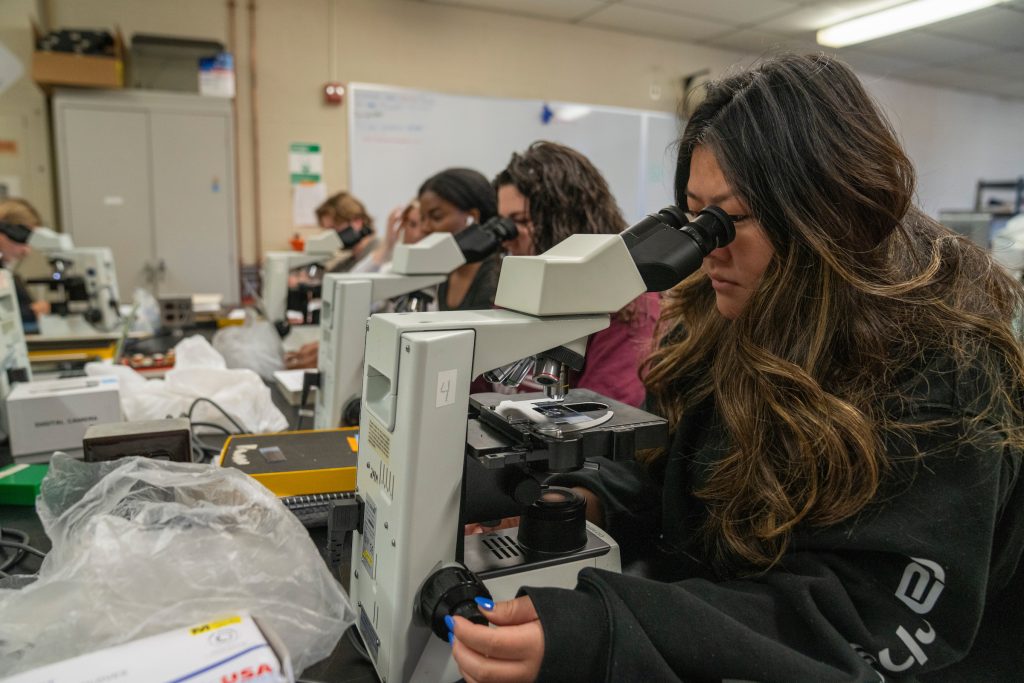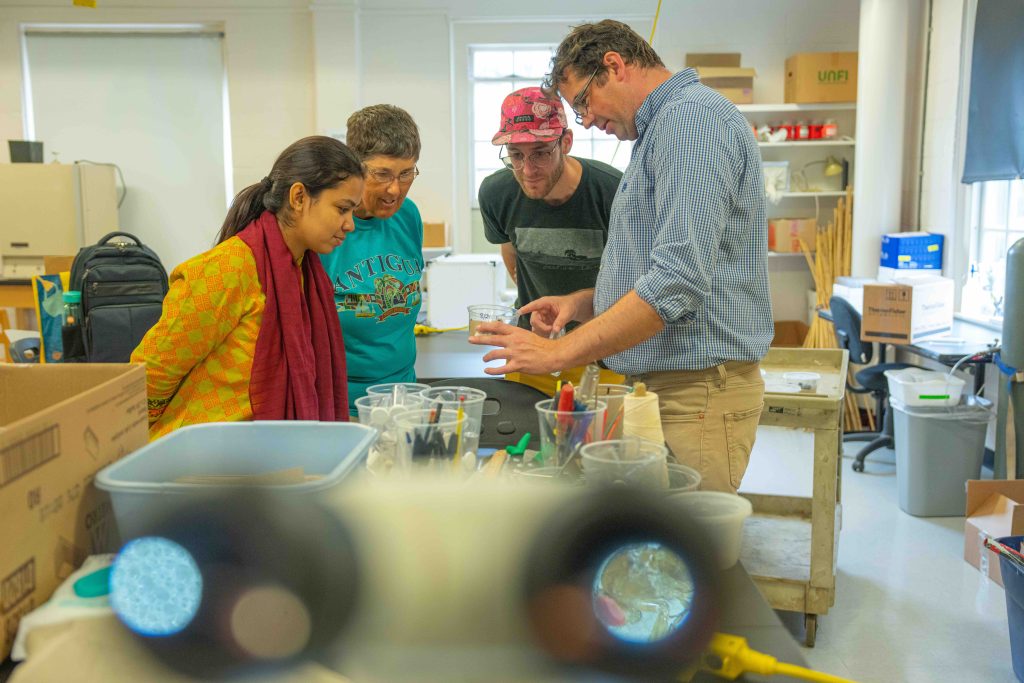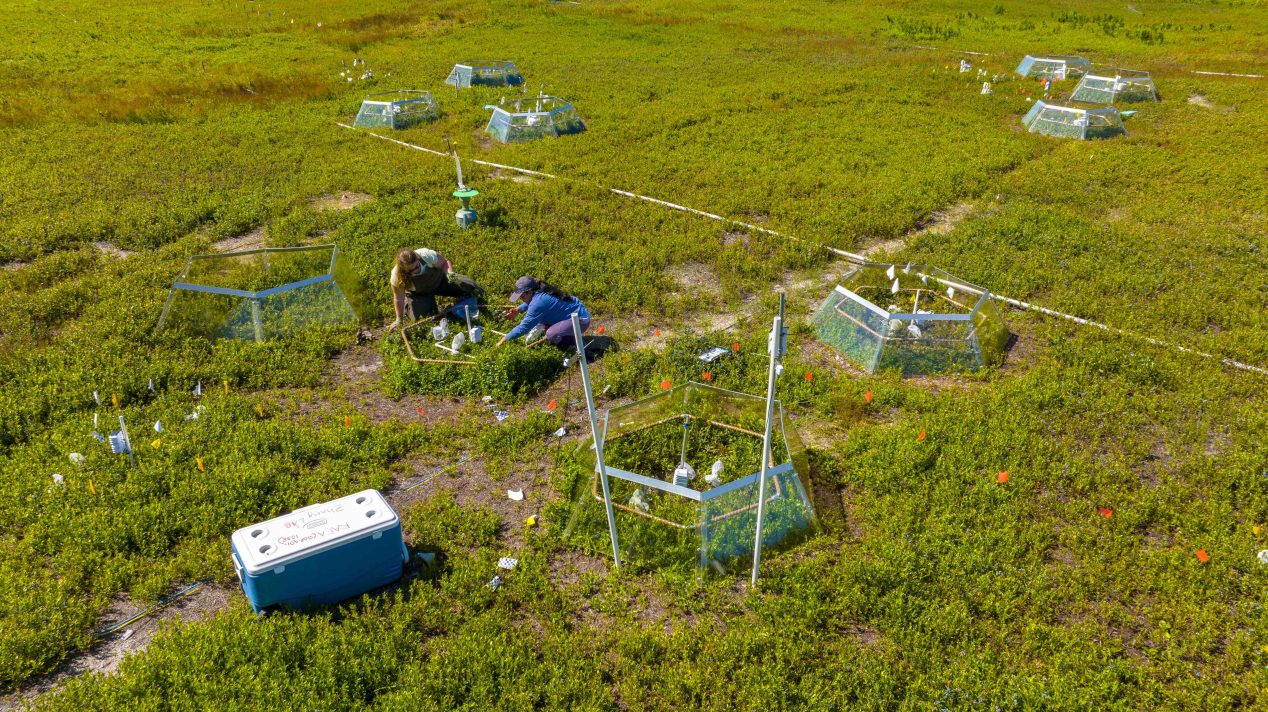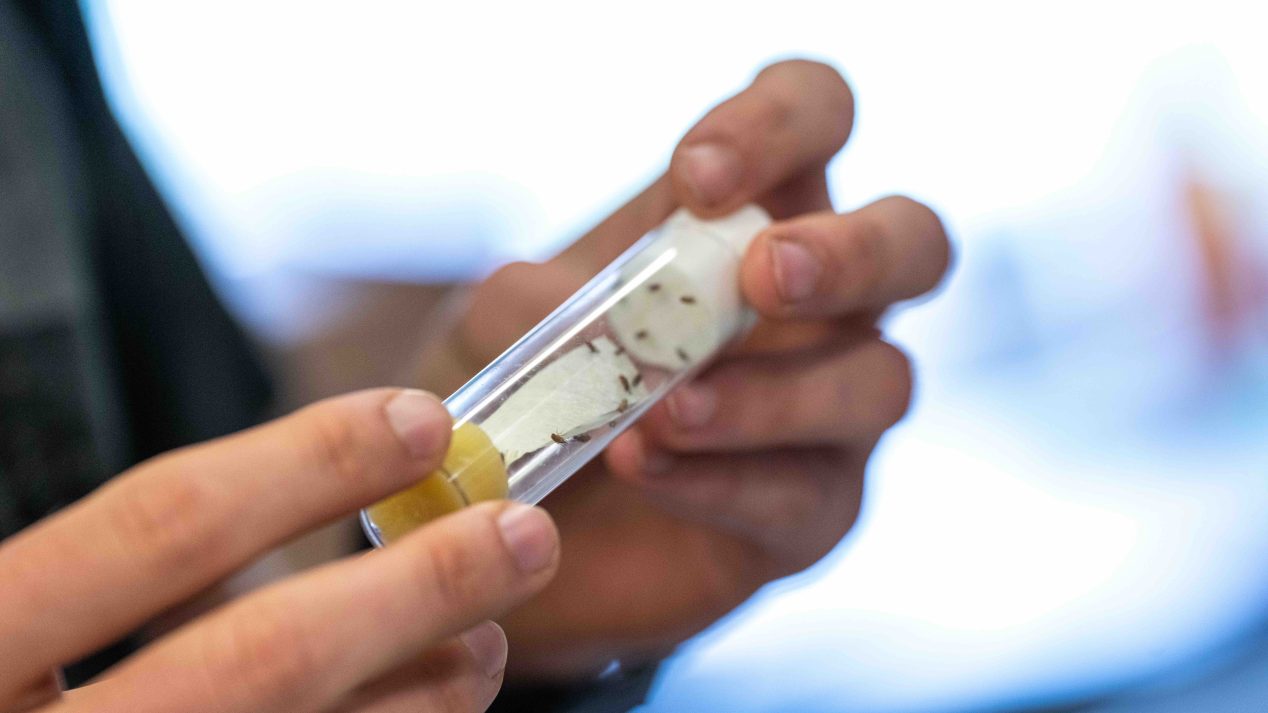about sbe
The School of Biology and Ecology (SBE) is an interdisciplinary team that educates the
next generation of professionals and leaders, makes groundbreaking discoveries, and
engages with communities to solve problems. We address fundamental issues in living
systems, from the health of organisms to ecosystems, that affect Maine and beyond.

goals
- Support excellent broad-based degree programs in
biology at the undergraduate and graduate levels with
innovative teaching methods - Developing and maintaining nationally and internationally impactful research
- Maintain our role in service to Maine and the world
education
- Maintaining broad-based degree programs in Biology;
- Developing and researching innovative teaching methods for the life sciences;
- Developing new degree programs in ecology.
Undergraduate Education
Undergraduates at the School of Biology and Ecology pursue a wide variety of careers, in both basic and applied aspects of biology that range from cellular biology to ecology. A significant proportion of students plan to enter the health care field. The department provides a major academic home for students wishing to pursue pre-med and other health profession careers, and offers a concentration in Pre-Medical Studies. The concentration in Pre-Medical Studies offers guidance to students preparing for a career in medicine or in any other health profession. Many of our students are interested in research careers with animals, plants, and fungi, careers in agriculture, and careers related to the environment. The School of Biology and Ecology recognizes the significance of a solid foundation in organismal biology integrated with an understanding of ecology and evolutionary principles in meeting today’s environmental and human health issues, and to meet this demand, SBE offers exceptional undergraduate degree programs in Biology, Zoology, and Botany. The coursework required of each program is rigorous and spans the sub-disciplines of biology and ecology, including the basic principles of structure and function, physiology, genetics, and development. A key feature of these degree programs is the wide choice of courses to meet each of the required areas, allowing students a degree of freedom to design their degrees to reflect and engage their particular interests. SBE provides high quality basic introductory biology service courses (i.e. BIO 100, BIO 200, BIO 122, and BIO 208) for the biologically based disciplines within the College of Earth, Life, and Health Sciences, the nursing program, and the University community as a whole. Additionally, students interested in ecology may select an Ecology concentration within the School of Biology and Ecology. Students in Biology, Botany, or Zoology can choose Entomology as a concentration.
We have developed the experience “From the Ocean to Orono” as part of the School of Biology and Ecology orientation and as a research learning experience (RLE) that helps students explore different
aspects of biological sciences, meet fellow students, and interact with faculty. All first-year students in Biology, Botany, and Zoology majors participate in the week-before-semester event, which is split evenly between activities on campus in Orono and at Acadia National Park. Students then continue their RLE in the fall semester, where they will conduct research with an SBE faculty member throughout the semester. This course also introduces students to their majors and important campus resources available to support students.
graduate education
For graduate students, the School offers Master of Science (M.S.) degrees in Biological Sciences, Entomology, and Zoology, and Doctor of Philosophy (Ph.D.) degrees in Biological Sciences and Zoology. SBE participates in interdisciplinary degree programs, such as Doctor of Philosophy in Plant Science, Masters in Botany and Plant Pathology and Masters and Doctoral degrees in Ecology and Environmental Sciences.

Award winning teaching faculty
The School of Biology and Ecology maintains a leadership role in providing major resources to the University and promoting science education at all levels while creating and researching innovative methods of teaching. Since 1964, faculty of this School (and the departments that merged to form it) have won major University teaching awards, including 4 Distinguished Maine Professor Awards, 2 Presidential Outstanding Teaching Awards, and 1 Inspiring Professor of the Year Award (given only once by Student Government). Specific efforts include the creation of a major initiative designed to improve learning outcomes in our large introductory courses, increase capacity in these courses, and in the future, work with others on campus (MST program and life sciences faculty in other units) to enhance training and outreach for K-12 science teaching.
Research
Research in SBE spans the breadth of biology from cells to ecosystems and touches on all areas that we cover in our undergraduate degree programs. SBE faculty develop core biological understanding and apply that to societal needs. For example, SBE research is understanding the impacts of climate change on ecosystems and natural resources, integrating ecosystem change with alteration of disease vectors and animal health, improving sustainable management practices for some of the largest industries in Maine (Forestry and Wild Blueberry), providing insight into eco-evolutionary dynamics, and understanding mechanisms underlying the progression of neuromuscular disease.

service
The School of Biology and Ecology is the place where business leaders, policy-makers, and the public in general come for up-to-date information on a wide variety of subjects related to biology. The School also supplies the knowledge and skills necessary for the successful creation of an economy that is based on technologically advanced and sustainable utilization of State’s natural resources. Research clusters pull together the expertise of individual faculty members and their research teams in an effort to address problems facing Maine residents. Emphasis on the integrative aspects of biology facilitate finding new and innovative approaches to problem-solving that might be lost when focusing on more narrow individual research fields. Increased visibility of ecology provides a clear ‘point of contact’ for interested stakeholders. SBE also highlights the importance of ecological approaches for sustainable economic activities, such as pest control, agriculture, aquaculture, or land development.
Initiative for One Health and the Environment
A new interdisciplinary Initiative for One Health & the Environment at the University of Maine builds on current strengths, and is focused on climate change and emerging issues in animal, plant, and human health. VISIT SITE


